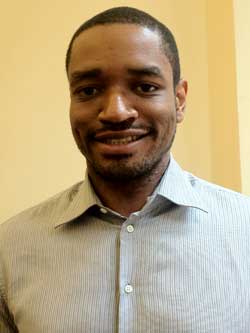Filed Under > Convocation
Benjamin Pass: Filling a Gap in Dental Education
At TC and the Columbia University School of Dentistry, he found a program that allows him to be both a dentist and a teacher.
The joint DDS/Masters in Education degree program, through which students become dentists and also earn TC master’s degrees in dental education, “is the most important innovation in our department in recent times,” said O. Roger Anderson, Chairman of the Math, Science & Technology Department. The program, which admitted its first students in 2011, “provides a unique opportunity for students in dental medicine to gain expertise not only in their profession but also in the teaching of dental sciences. It recognizes that medicine is very complex, and to teach it effectively, you need not only to know your discipline, but also how to reach patients and students of various needs.”
To that end, Pass, who received a Masters of Arts degree in Science and Dental Education as well as a Doctor of Dental Surgery degree, created a new curriculum, currently under consideration by both TC and the Dental School, for working with disabled adult dental patients.
“My academic interests are in special needs, and I do like helping others and giving back. This is an area that’s neglected in dentistry education and private practice,” says Pass, whose dyslexia as a child went unattended by his teachers until he was an adult studying at the Air Force Academy. There he connected with a physics professor “who really believed in me. I found out it wasn’t my fault that I had trouble learning certain things. As a child, I had ‘learned’ by simple repetition and regurgitation. I rarely achieved a sense of understanding because the traditional classroom setting failed to facilitate how I best process information.”
Pass says these experiences, difficult as they were, “helped me to develop empathy and inspiration to work with special-needs patients, because they have extremely limited windows of cognitive capacity which we as educators must acknowledge.” He says his new curriculum “is designed to highlight and encourage the diverse ways in which students learn.”
Pass has years of military service ahead of him. After graduation, he entered a three-year residency in Prosthodontics at the University of Texas Health Science Center in San Antonio, which is affiliated with the United States Air Force Postgraduate Dental School. He hopes to practice general dentistry for a year, focusing on special-needs and poor and minority patients, and then teach dentistry with a focus on treating underserved communities, including disabled patients. If his suggested course of studies is approved, Pass will leave a legacy at TC: an optional focus on the teaching of dentistry for special-needs adult patients.
Published Friday, Jun. 7, 2013
